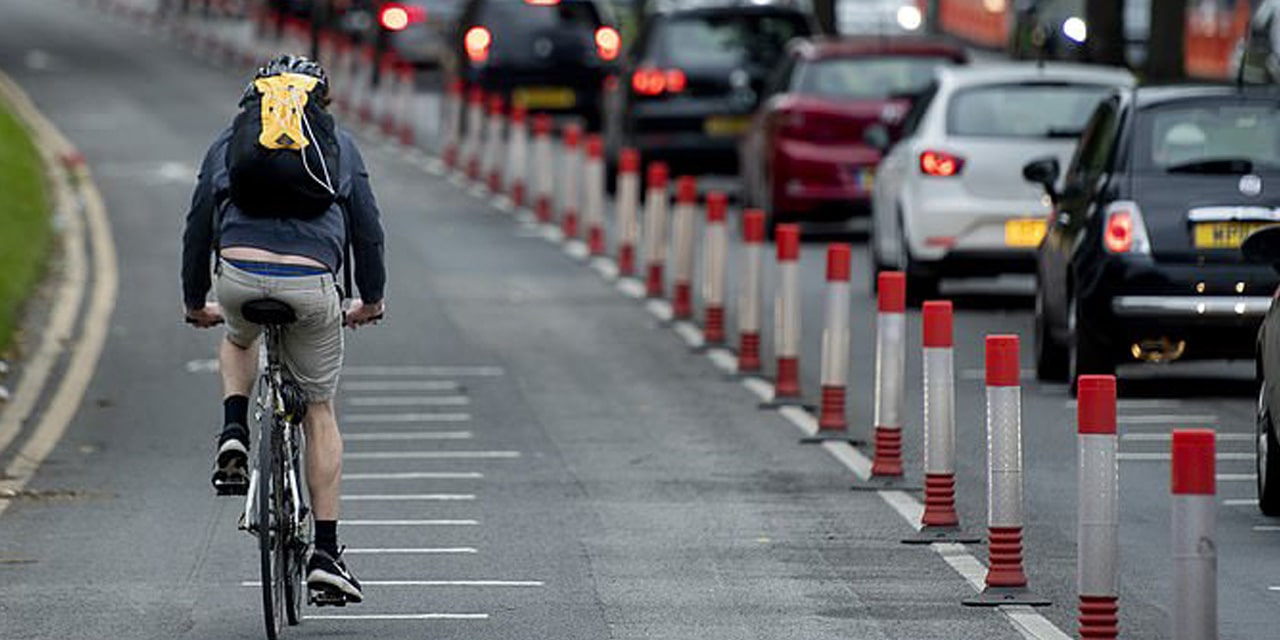Kandjemuni Kamuiiri
The City of Windhoek plans to implement bicycle lanes within the City at an estimated cost of N$350 million for Phase 1.
The Windhoek Observer can reveal the development will now make bicycle lanes compulsory for all newly constructed roads moving forward. “Since the City developed the non-motorised transport (NMT) strategy, there is a condition that says ensure that NMT requirements are incorporated in all new developments; private sector and public sector projects alike. Each road within the City should include cycling lanes, going forward,” City Spokesperson, Harold Akwenye, said.
The plan, which falls in line with plans to convert Windhoek into a smart city, intends to create 315km of non-motorised transport (NMT) network, of which 70km were identified as safe routes to schools.
“As the City of Windhoek, we believe that a complete city is one that has multiple modes of transportation. We believe that recognising cyclists as significant characters in our city mobility is the sign of a forward-thinking urban environment,” Akwenye said.
He argued that all smart cities have given regard to bicycles as much as they do to other modes of transportation, and that City is doing the same.
“Windhoek is currently subjected to a car-oriented mobility, but by becoming a cycle and pedestrian friendly City, the City of Windhoek will reduce the amount of carbon dioxide pollution and reduce cars on the road and the noise that goes with them.”
According to Akwenye, the City together with the Ministry of Works and Transport (MWT), the Ministry of Urban and Rural Development, with the support of the Deutsche Gesellschaft für Internationale Zusammenarbeit GmbH (GIZ), embarked on a programme to develop the Sustainable Urban Transport Master Plan (SUTMP).
“Through the stakeholder consultation, site observations and non-motorised transport (NMT) surveys, an NMT Network for Windhoek were developed,” he said. On the rational of implementation of bicycle lanes, Akweye said, “this programme has a particular focus on the sustainable provision of public transport (PT) and NMT.”
“Studies show that, approximately only 20 percent of Windhoek’s households can afford to own a car. According to the City of Windhoek, low-income households in Windhoek spend up to one quarter (25 percent) of their income on transport.”
It was on this basis, Akwenye said, that the City saw a need for a new planning approach, which provides sustainable transport options for all citizens, especially the poor, children, elderly and disabled.
“The City of Windhoek is prioritising NMT in order to create a safe and pedestrian-friendly transport system and roads environment for pedestrians and cyclists, improve the pedestrian network and environments of Windhoek, identify and implement a cycle network for Windhoek and encourage more cycling in Windhoek,” he said.
“The project will be rolled out in Phases over a 5-year cycle for a 15-year time period starting from 2019/2020 and ending at 2034/2035,” Akwenye said adding the City’s target is to connect north-western communities, with the Central Business District (CBD).
“This is because these communities are currently experiencing very high pedestrian activities. The City will also ensure the provision of two or three “east‐west” routes that cross the Western By-pass,” he said.
Akwenye further revealed that there are currently no plans to accommodate electric cars in Windhoek in the near future.
“The City is supportive of the electric cars to meet the challenge over greenhouse gas emissions, which contribute to global warming and climate change, however it does not see it as a priority area. Electric cars shall avail clean, silent and eco-friendly transport solutions.”
“The City of Windhoek should not necessarily take the initiative. This is more a national matter to guide and provide corresponding legislation in this regard. Once legislation is passed, the private sector will most likely take the initiative and start accommodating E points for the electronic vehicles.”
Last Friday, the City of Windhoek advertised its transport project, inviting interested contractors to submit their Expression of Interest for civil construction work of bicycle lanes to be constructed under the Transport Mobility Logistics Project.




